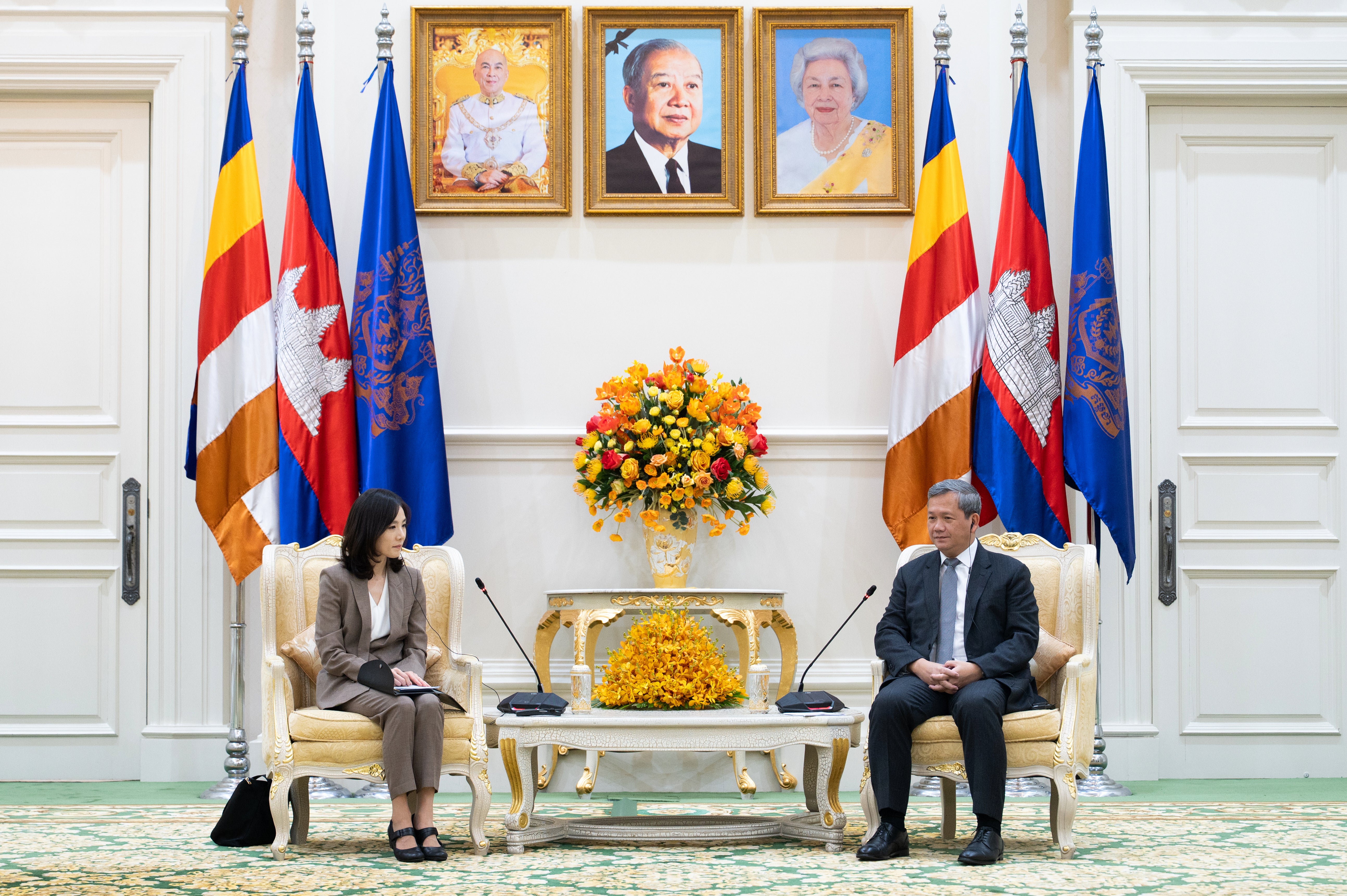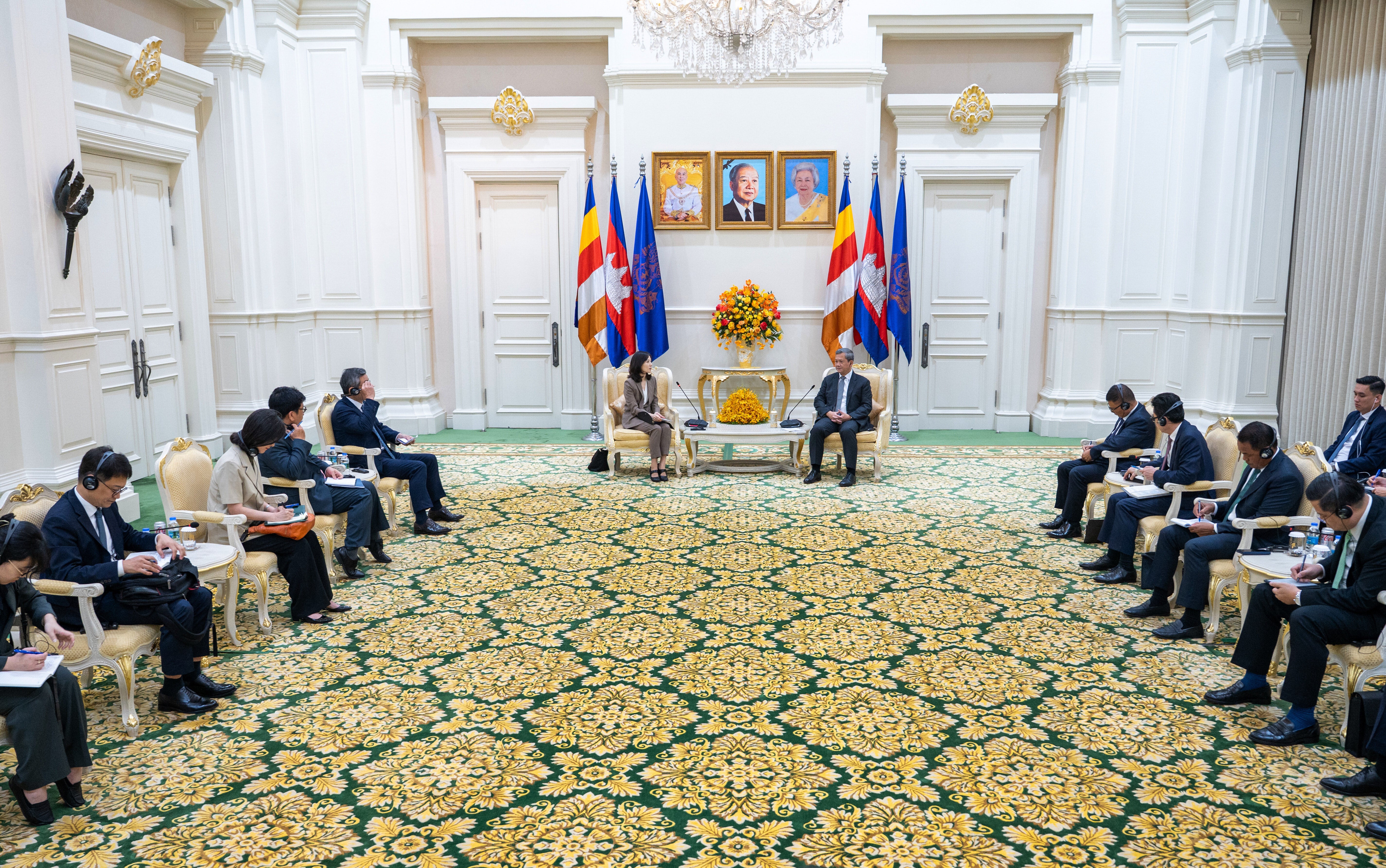South Korean and Cambodian officials have agreed to take action on online scams, following the death of a South Korean student who was allegedly trafficked and forced to work in a scam center in Cambodia.
A South Korean delegation visited the Cambodian capital, Phnom Penh, for talks with officials, including Cambodian Prime Minister Hun Manet on Thursday.
It is estimated that approximately 200,000 people, including some 1,000 South Koreans, are working at online scam sites in Cambodia.
In August, the body of 22-year-old student Park Min-ho was discovered in a pickup truck in Cambodia's southern Kampot province. Authorities said he died of a cardiac arrest after being tortured and beaten.
The South Korean delegation is hoping for the repatriation of its nationals involved in online scams in Cambodia and for the return of Park's remains, South Korea’s National Security Director Wi Sung-lac told a briefing in Seoul.

Wi earlier said the body’s return was delayed due to disputes over South Korea’s request for an autopsy by pathologists from both countries.
He said the two sides reached an agreement and the results of the talks would be announced later on Thursday.
It wasn’t immediately clear how those 1,000 South Koreans have ended up working in online scam sites in Cambodia. But South Korean officials believe many were lured with promises of high-paying jobs before being forced to work against their will, but some also went there voluntarily.
In the first eight months of this year alone, there were reports of 330 South Koreans detained in Cambodia, Wi said in an earlier briefing Wednesday, citing reports from victims themselves and their relatives. Wi said that 80 per cent of those cases have been resolved.
The two sides on Thursday discussed joint efforts to combat transnational crimes including online scams, Hun Manet said on Telegram.

“Cambodia and the Republic of Korea will continue to strengthen our collaboration to prevent, suppress, and combat online scams more effectively, contributing to the maintenance of peace, public order, and social security,” he said.
Wi said there would be a limit in South Korea solely dealing with such a transnational online scam industry based in a foreign country. But he said South Korea will mobilize “all available methods” to protect the safety and properties of South Koreans and promote coordination with Cambodia, neighboring countries and international organizations.
Hun Manet said “Cambodia does not need any neighboring country to carry out such work on its behalf” to address online scam issues and that the two countries can resolve the matter bilaterally without the need for any third-party involvement.
Wi said South Korea is seeking early repatriations of 60 South Koreans arrested recently in Cambodia on suspicion of involvement in online scams. Once repatriated, they would face investigation and possible legal punishments, depending on the degree of their involvement, Wi said.
He said South Korea will also strive to locate and bring home South Koreans still listed as missing, including those who are possibly held in online scam centers in Cambodia against their will.

On Thursday, a South Korean travel ban came into effect for parts of Cambodia including Bokor Mountain in Kampot province, where Park Min-ho was found dead, as well as the towns of Bavet and Poipet, on Cambodia’s border with Vietnam and Thailand.
The United Nations and other agencies have estimated that cyberscams, most of them originating from Southeast Asia, earn international criminal gangs billions of dollars annually. The cybercriminals pretend friendship or tout phony investment opportunities to cheat their targets around the world.
Jeremy Douglas, former regional representative for Southeast Asia and the Pacific, now current chief of staff for the United Nations Office on Drugs and Crime, said that Southeast Asia — particularly the Mekong Region’s border areas between Cambodia, Laos, Myanmar and Thailand — is “arguably the most significant global hub for scams and illegal online gaming.
“And the reason is pretty straightforward – criminals like the conditions, the freedom they have, the ability to make and hide money with little resistance.”
“It is unclear how governments will respond, but the main thing now is pulling together on a regional solution. The situation can’t simply be ignored,” Douglas said.







